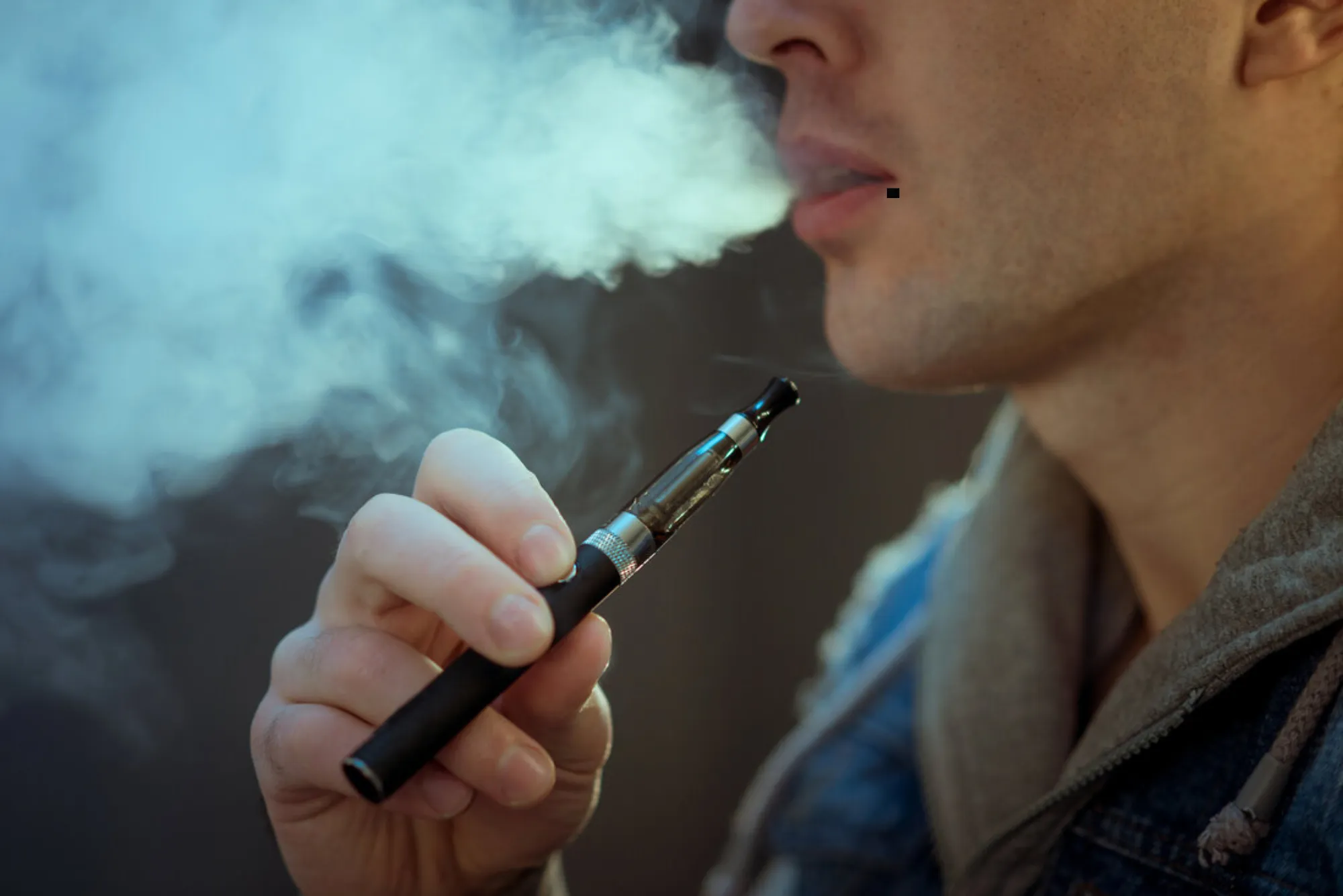Vaping has become a popular method for consuming cannabis due to its convenience and perceived safety compared to smoking. However, concerns have arisen regarding the potential health risks associated with vaping, especially when it comes to lung irritation and respiratory health. THC vapes and THC vape pens are often marketed as safer alternatives to traditional smoking, but recent studies and user reports suggest that they may still pose risks, particularly to the lungs.
This article will explore whether THC vape use can lead to lung irritation, the underlying causes of these respiratory issues, and what individuals need to know to use these products safely.
What is a THC Vape and How Does It Work?
A THC vape is a device designed to vaporize cannabis oil, which contains tetrahydrocannabinol (THC), the primary psychoactive compound in cannabis. This oil is heated in a chamber within the vape device, turning it into an aerosol that the user inhales. This method of consumption is favored by many because it is less harsh on the throat and lungs compared to traditional smoking. A THC vape pen is a smaller, portable version of a vaporizer that can be easily carried around and used discreetly. The pens typically consist of a battery, a heating element, and a cartridge containing the THC oil.
When you inhale from a THC vape pen, the heating element rapidly heats the cannabis oil, creating vapor. This vapor is then inhaled, delivering THC directly into the lungs, where it is absorbed into the bloodstream. This process provides a fast onset of effects, making it a preferred method for those seeking quick relief or a rapid high. However, this convenience and effectiveness come with potential health risks, particularly regarding lung health.
How THC Vapes Can Cause Lung Irritation
There is growing evidence that the use of THC vapes may contribute to lung irritation and other respiratory issues. While vaping is often considered safer than smoking, the aerosol produced by a vape pen is not just water vapor. It contains a variety of chemicals, some of which can irritate the lungs. The irritation caused by vaping may be due to several factors, including the ingredients in the vape oil, the heating process, and individual user sensitivity.
The primary issue with THC vape pens is that they can contain more than just cannabis oil. Many vape oils include additives, flavorings, and thinning agents that help create a smooth vapor. Some of these substances, like propylene glycol and vegetable glycerin, are commonly used in the vaping industry but may not be entirely safe when inhaled regularly. These additives can break down into potentially harmful byproducts when heated, which can irritate the lungs and cause respiratory discomfort.
Another concern is the potential presence of vitamin E acetate in some THC vape products. Vitamin E acetate is a thickening agent that has been linked to severe lung injuries, particularly in cases of vaping-associated lung injury (VALI). Although not all THC vape pens contain this substance, it has been detected in some black-market products, highlighting the importance of purchasing vape pens from reputable sources.
The Effects of THC Vape on the Lungs

The effects of using a THC vape pen on lung health can vary based on several factors, including the frequency of use, the composition of the vape oil, and the individual’s overall health. For some users, regular vaping can lead to a condition known as “vaper’s cough,” characterized by persistent coughing and throat irritation. This is often a result of the irritation caused by inhaling vaporized chemicals that are not meant to enter the lungs.
In more severe cases, prolonged use of THC vapes has been associated with inflammation of the lung tissue. This inflammation can cause symptoms such as shortness of breath, chest pain, and wheezing. The irritation from these chemicals can damage the delicate lining of the lungs, leading to chronic respiratory issues. In some cases, users may develop more serious conditions like lipoid pneumonia, a form of pneumonia caused by inhaling fatty substances found in some vape oils.
THC Vape Pens and Vaping-Related Lung Injury
Vaping-related lung injury (VAPI or EVALI) is a term used to describe a range of lung issues associated with the use of vaping devices, including THC vape pens. This condition gained attention in recent years due to a spike in hospitalizations and severe lung injuries among vape users. EVALI, which stands for e-cigarette or vaping-associated lung injury, has been linked to the use of vape products that contain THC, especially those obtained from unregulated sources.
The symptoms of EVALI can include coughing, chest pain, shortness of breath, nausea, and fever. In severe cases, the condition can be life-threatening, requiring hospitalization and intensive care. The exact cause of EVALI is still being studied, but researchers suspect that certain additives in THC vape oils, such as vitamin E acetate, may play a significant role in causing the damage.
Who is at Risk for Lung Irritation from THC Vapes?
While anyone can experience lung irritation from vaping, certain groups are at higher risk. Individuals with pre-existing respiratory conditions like asthma or chronic obstructive pulmonary disease (COPD) may be more susceptible to the harmful effects of THC vape pens. Their compromised lung function makes it difficult for their bodies to handle the irritants present in the vapor, potentially leading to worsened symptoms or respiratory distress.
Young people and teenagers are also at increased risk, as their lungs are still developing, making them more vulnerable to the effects of inhaled toxins. The rising popularity of THC vape products among younger users has raised public health concerns, as early exposure to these products may have long-term consequences for lung health.
Safe Practices for Using THC Vape Pens

If you choose to use a THC vape pen, it is essential to take precautions to minimize the risk of lung irritation. One of the most crucial steps is to purchase products from reputable sources. Avoid buying vape pens or cartridges from unregulated vendors, as these may contain harmful additives or contaminants that can exacerbate lung irritation.
It is also important to start with small doses, especially if you are new to vaping. This approach allows your body to adjust and helps you gauge how your lungs respond to the vapor. If you notice any signs of irritation, such as coughing or chest discomfort, consider reducing the frequency of use or taking breaks to give your lungs a chance to recover.
Hydration is another key factor in reducing lung irritation when using THC vapes. Vaping can dry out the throat and lungs, leading to discomfort and increased coughing. Drinking plenty of water can help keep your respiratory system moist and may alleviate some of the irritation caused by inhaling vapor.
Weighing the Risks of THC Vapes
While THC vape pens offer a convenient and discreet way to consume cannabis, they are not without risks. The potential for lung irritation and other respiratory issues should not be overlooked, especially for users with pre-existing health conditions or those who vape frequently. The chemicals and additives found in some vape oils can cause irritation and inflammation, leading to discomfort and, in some cases, more severe lung problems.
To minimize the risk of lung irritation from THC vapes, it is crucial to use products from trusted sources and be mindful of how often and how much you are vaping. Paying attention to your body’s signals and taking breaks when needed can help protect your lung health.
Ultimately, understanding the potential risks associated with THC vape use is essential for making informed decisions about your health. While vaping may be a safer alternative to smoking in some respects, it still carries risks that should not be ignored. Being aware of these risks and taking steps to mitigate them can help you enjoy the benefits of THC while minimizing potential harm to your lungs.
This article aimed to provide a comprehensive look into whether THC vape use can cause lung irritation. By understanding the potential issues and practicing safe usage, you can make more informed choices and reduce the likelihood of adverse effects.



